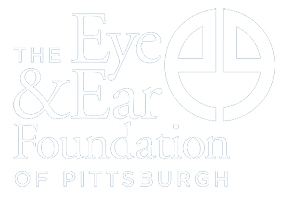The Pittsburgh Hearing Institute

Investment Opportunities
The success of the Pittsburgh Hearing Institute largely hinges on its ability to attract and retain top-tier researchers and clinician scientists while fostering a collaborative environment equipped with sufficient space and essential resources. Furthermore, the institute is committed to supporting ancillary services that create a comprehensive care network for both children and adults affected by hearing loss.
Visionary donors who share this mission can help bring the aspirations of the Pittsburgh Hearing Institute to fruition, benefiting the hundreds of millions around the globe experiencing some form of hearing loss. Charitable contributions to the Pittsburgh Hearing Institute will propel it toward its goal of preventing and curing hearing loss.
We are witnessing rapid advancements in medical knowledge, particularly in stem cell biology, genomics, molecular therapies, and new diagnostics for dizziness and balance rehabilitation.
Stem Cell Biology: Research is focused on the potential of stem cells to regenerate damaged inner ear tissues, offering hope for restoring hearing by repairing or replacing essential structures.
Genomics and Gene Therapy: Advances in genomics help identify genetic factors contributing to hearing loss, including developing some lead candidates for gene therapy being taken forward towards the clinic.
Molecular Therapy: These therapies aim to treat the biological mechanisms of hearing loss at the molecular level, restoring normal auditory function by repairing or replacing damaged components in the auditory system.
Nanomedicine: This field leverages nanotechnology to enhance drug delivery systems for targeted inner ear treatments, improving efficacy and minimizing side effects. Nanoparticles also aid in advanced diagnostic tool development for deeper insights into hearing loss.
Immunology: The University of Pittsburgh has established the first Immune Mediated Inner Ear Disorders Center, focusing on innovative diagnostics and treatments for autoimmune ear diseases, Meniere’s disease, and sudden sensorineural hearing loss.
Implantable Devices: Collaborating with robotics experts, we are advancing cutting-edge hearing devices and the next generation of implantable solutions.
Vestibular Disorders: Researchers have developed a wearable monitor for vertigo attacks and are investigating new medical and surgical therapies for vertigo, while our leading rehabilitation center sets a new standard of care.
Together, these fields are enhancing our understanding of hearing loss and paving the way for innovative treatments. As research progresses, we expect more effective prevention and rehabilitation strategies, improving the quality of life for millions with hearing issues.

